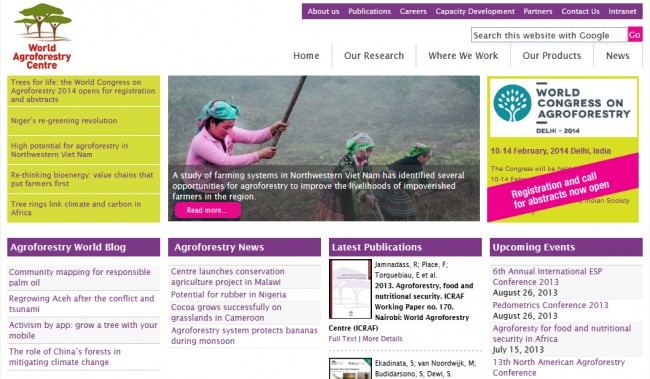Climate, Food and Farming Research Network Call for Proposals, 2013. Grants to support scientific training of PhD students from developing countries.
Background
The Climate Food and Farming (CLIFF) Research Network is a collaborative initiative of the CGIAR Research Program on Climate
Change, Agriculture and Food Security (CCAFS) and the Universities of Copenhagen and Aarhus. The Network aims to build the
capacity of young scientists, generate novel climate change research on smallholder farming systems, and facilitate South-South knowledge exchange. Each year, starting in 2011, CLIFF has provided small grants to support graduate student research and participation in international training events and conferences.
The activities have resulted in a linked network of emerging scientists that improve the quality of each other’s research, collaborate on new proposals, and speed-up the pace of their scientific development.
Call for proposals
In 2013, we invite applications from students from developing countries, currently enrolled in PhD programs, to become part of the CLIFF Network. Selected students will be sponsored for short-term (3-4 month) scientific training and research stays at CGIAR centres or affiliated research institutions1. During their tenure at the host institutions, students will learn approaches used in the Standard Assessment of Mitigation Potential and Livelihoods in Smallholder Systems (SAMPLES) research programme to evaluate
smallholder farming systems in terms of system level livelihood and environmental outcomes at whole-farm and landscape scales.
The techniques that may be studied include (but are not limited to) remote sensing, economic surveys, and measurement of greenhouse gas emissions from soils. Precise training will depend on the student’s and host institution scientists’ interests. Applications are invited for training and travel grants of up to 12,000 USD.
The travel grants will be used to support living and research costs at the host institution. It is important to note that these grants will not necessarily be to support participants’ own research, but to facilitate training on techniques and methods being applied in SAMPLES and are expected to be applicable to the beneficiaries’ own research.
Eligibility and conditions
• Applicants must be PhD students from and conducting their research in a developing country.
• Applicants must be currently enrolled PhD students, but NOT in their final year of study.
• The grant money should be used to finance the short-term scientific visit, NOT tuition or other fees related to the PhD degree.
Application requirements
The application must include the following documents merged into one pdf file:
• 1-2 page motivation letter (described below).
• 1-page curriculum vitae that includes your contact details.
• Letter of support from your PhD supervisor
• All applications must be in English.
The motivation letter, which must be no more than two A4 pages, must include the following:
1. Your name, citizenship and the country where you are conducting your PhD study
2. The objectives of your PhD study.
3. Linkages between your study and the SAMPLES programme.
4. Justification for the short-term scientificvisit.
5. When you intend to undertake the short-term scientific visit (note that grants will be disbursed mid-November).
6. The CGIAR centre you intend to visit.
Downlaod the attached document below for more information.
Submission
Applications must be submitted on or before the 20th of August 2013. To submit your application
and for any questions please contact
The coordinator of the CLIFF network,
Ngonidzashe Chirinda,
Department of Agroecology, Aarhus University,
Email: Ngonidzashe.Chirinda@agrsci.dk.

 General1 week ago
General1 week ago
 Natural Sciences1 week ago
Natural Sciences1 week ago
 Agriculture & Environment5 days ago
Agriculture & Environment5 days ago
 Health1 week ago
Health1 week ago
 Health1 week ago
Health1 week ago



